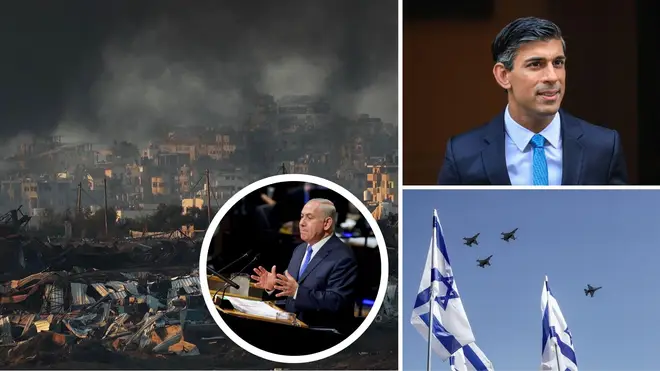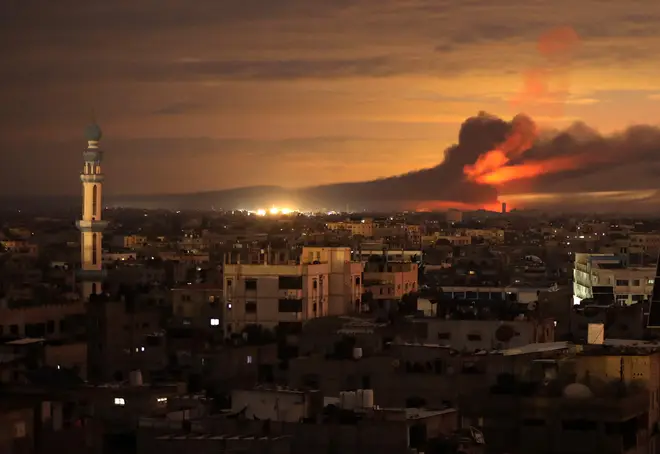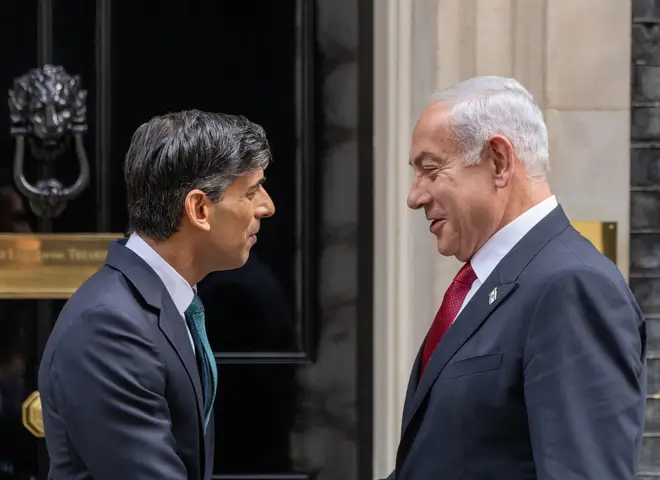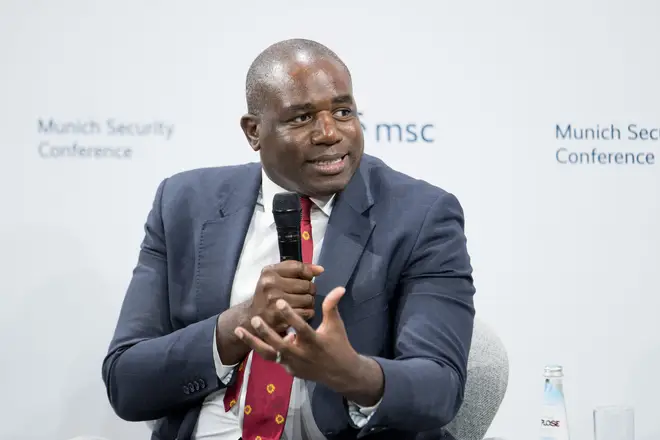
Rachel Johnson 7pm - 10pm
8 April 2024, 20:23 | Updated: 8 April 2024, 21:36

Hamas has rejected Israeli's latest ceasefire proposal, six months on from the October 7 attacks.
Senior Hamas official Ali Baraka broke the news on Monday evening. It followed earlier suggestions from officials that no progress had been made during negotiations which took place in Cairo over the weekend.
It comes as Israel's Prime Minister Benjamin Netanyahu announced there had been a 'date set' for a Rafah ground offensive.
In the PM's video statement released on Monday, Mr Netanyahu said the Rafah operation is essential for victory.
"It will happen. There is a date," he said.
It comes as Rishi Sunak vowed to continue to stand by Israel as the UK marks six months since the October 7 Hamas attacks.
The Prime Minister marked the six-month anniversary of the attacks by reiterating the UK's support for Israel in its war in Gaza.
Residents of the Gaza city of Khan Younis returned to a scene of destruction on Tuesday following the withdrawal of Israeli troops late on Sunday.
According to the latest satelite data, around 45,000 homes are thought to have bene destroyed.

Analysis of Copernicus Sentinel-1 satellite data by Corey Scher of the City University of New York and Jamon Van Den Hoek of Oregon State University, revealed extensive damage to the city.
Approximately 55% of the city's buildings were damaged or destroyed during the Israeli offensive, according to the analysis.
But despite the commemoration, Mr Sunak urged the Israeli Government to ensure aid gets into Gaza more swiftly - and criticised the Israeli Defence Force (IDF) for an air strike which killed three British aid workers.
Read More: Royal Navy ship to be sent to Gaza to help aid to get into war-torn strip
Sunday marks six months since the October 7 attack, in which Hamas militants breached the barrier between Gaza and Israel and attacked military bases and civilian communities.
More than 1,100 people were killed in the attack, with 250 people captured as hostages by Hamas, approximately 130 of whom remain in captivity.

It was the trigger for Israel's ongoing military action in the Gaza Strip, which has resulted in the deaths of more than 33,000 Palestinians, according to the territory's Hamas-run health authority, as well as mass displacement of the population and an ongoing humanitarian crisis.
The Prime Minister said: "Today marks six months since the terrorist outrage of October 7 - the most appalling attack in Israel's history, the worst loss of Jewish life since the Second World War.
"Six months later, Israeli wounds are still unhealed. Families still mourn and hostages are still held by Hamas."
Mr Sunak added: "We continue to stand by Israel's right to defeat the threat from Hamas terrorists and defend their security.
"But the whole of the UK is shocked by the bloodshed, and appalled by the killing of brave British heroes who were bringing food to those in need."



John Chapman, 57, James "Jim" Henderson, 33, and James Kirby, 47, were the three Britons who died in air strikes carried out by the IDF on their aid convoy on April 1.
The Prime Minister highlighted the growing toll on Palestinian civilians, and said the UK had been "straining every sinew" to get aid into Gaza, while emphasising the need for Hamas to release its captives.
He called for an immediate humanitarian pause in the fighting, "leading to a long-term sustainable ceasefire".
David Lammy MP, Labour's shadow secretary of state for foreign, Commonwealth and development affairs, similarly called for Israeli hostages to be returned home, and condemned the "intolerable death and destruction" of the IDF's military campaign.
But in contrast to the Prime Minister, he called for "an immediate ceasefire".

In recent weeks, the Government has come under pressure to reveal whether it has received legal advice about continuing arms sales to Israel.
Mr Lammy said: "The UK Government must also unequivocally commit to complying with international law in this conflict, including following the licensing criteria governing arms sales, as well as calling on Israel to implement the provisional measures in the ICJ's binding January ruling in full."
He also insisted there was a need to "look forward to how we can build a just and lasting peace out of the horrors of this war".